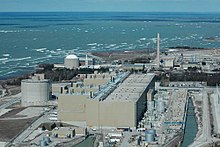Sustainable Living Resource Guide | ||
If you have been thinking about what it will take to survive during a natural disaster or emergency situation then here are a few things to consider. The following article will go into detail on what items will be needed for your survival checklist.
Solar power and renewable energy sources are used to power your home appliances and electronics. It is also important to understand how powering your home with wind is a great low cost way to reduce the cost of electricity usage.
Then there is the need for having a way to communicate in areas of a radio, transistor or walkie talkie. You will need to decide where your living space will be, then how you will secure that shelter either by owning the property by paying off the mortgage or earning enough to cover monthly rental payments. Next you will want to get a piece of transportation in the shape of a car, boat or truck. Variations would be a motorcycle, bicycle or moped. The vehicle will help you get around town and run errands. To stay on the road it will require fuel, in the area of cooking oil or handmade diesel fuel.
Most sustainable living situations will allow you to purchase farmland or lease the property your home is sitting on, either locally or abroad. Maintaining your land is a step towards urban agriculture. Installing a water well to provide water is possible but may not be available where you choose to live, so you can try filtering the water for purification. Growing your own food will help in providing nourishment and maintaining health conditions, lastly when it comes to clothing you will be able to sew and make your own garments or buy previously worn clothes from a discount or second hand store. As you can see many of these things are the basic necessities of life and when one wants to live off the grid it becomes even more important to get it right.
|
Shelter | |
Architectural structures or buildings require some sort of rental agreement or mortgage loan to be paid on a monthly basis. Investing or buying real estate can be residential or commercial.
Lately the increase interest in living on a farm is creating a need for real estate agents and brokers to negotiate sales of homes on ranches and rural land.
The household can consist of a family, friends or a single individual. The price of the home is determined by the square footage and location.
Some cities have higher mortgage rates than others and the land zoning and city planning must be disclosed to the interested home buyers at the time of the sale of the property.
Long term homesteading will require the occupants to also find use for the farm that they are about to inhabit. Will the use it to host cattle or farm animals or will it be for the growing and maintaining of a garden of vegetation? depending on the usage the seller of these properties will have the costs associated with permits, licenses and insurance paperwork.
As long as the property has a septic tank or water source it should be a good purchase.
http://pixabay.com/en/building-barn-woodshed-abandoned-439547/ |
Transportation | |
Transport can come in a variety of mobility from air travel,railroads, paved and dirt roads and water boats. As you can tell if you have a private plane or train cargo it is possible to travel or transport goods and services by boat or state-line trucks.
Individuals are familiar with transportation that consists of bicycles, automobiles, buses and helicopters. While living sustainable it is easy to see that using a skateboard, scooter, or inline skates could be a way to also get around town.
Used vehicles are easier to maintain when it comes to maintenance and repairs, also with the need for alternative fuels. Hybrids that run on electricity or cars powered by cooking oil is leading the way in the preparation of diesel fuels.
Transport sustainability will be dependent on the economy production and consumption of products and the need for economic growth to spur the production of energy.
|
Land | |
Buying farmland starts with researching the area you want to live and finding a place in the southwest region of the country. Small farms are popular among retirees and the best place to find land to build on or grow is in the following states:
1. Texas
2. Ohio
3. Georgia
4. North Carolina
5. Illinois
6. Pennsylvania
7. Indiana
8. Tennessee
9. Michigan
10. Alabama
Sidenote: Although Kansas is known for its farming, its agricultural industries include: cattle, sheep, wheat, soybeans, cotton, hogs, corn and salt. also Kansas is part of the grain belt due to its grain production.
To Help Save Farms and Ranch land it is important to invest in properties and buy vacant land in areas that are losing agriculture development. Sustaining farms is what we see today in the economic crisis, to purchase development rights to land for agriculture zoning spots. The transfer to ownership and management for non-farmers is challenging when renting or dealing with small acreages for specialty crops.
|
Energy | |
Renewable energy such as solar and wind generation makes it easier to live off the grid or to at least generate energy for the utility company.
Solar energy homes require panels installed on the roof of the houses to capture heat rays from the sun and store in a generator battery for later usage.
Energy saving solar kits come in a variety of sizes and solar cells, check with your energy audit resource to get the best deals. The standalone PV system is done with first deciding how much energy consumption you will use on a monthly and annual basis.
You will also want to have efficient appliances such as refrigeration, washers and dryers, and heating and air conditioner systems. The ability to keep the battery generator charged during high and low solar resources.
Energy Design and Production for off-grid systems starts with energy efficiency this can be done with a wattage meter reader.
|
Communication | |
Technology has advanced and made it essential to have communication devices such as a cell phone, ham radio or transmitter.
Data communication is transferred wireless or through the use of cable or internet connections.
Telephones and telecommunications uses the air waves to deliver information for long distances. These networks can be attached to a computer or engineering outlet.
Some handheld communication devices such as GPS and smartphones make it easier to get information and share when living on a farm, vacant lot or rural real estate.
The need to be able to contact friends and family is a great way to share information over the internet through email or social accounts. Living far away from a city could cause a delay in delivery of goods and services.
Choosing the right type of communication technology will help with delivering mail and postal items through FEDEX and other mail carriers.
|
Fuel | |
The positive side is that it will help the environment, carbon footprint and reduce pollution, but the downside is that it will require the usage of large amounts of agriculture such as corn and soybeans. Animal fats and vegetable oils is a green way of producing fuel for vehicles. Hydrogen is another form of fuel that can be used from water or liquid nitrogen. Farm equipment such as a tractor or horse drawn mower can use the renewable energy sources produced from natural by products. |
Water | |
Having a great water system in place will help with drinking water, keeping the plants hydrated, as well as providing for bathing water.
water is the all time favorite of most because it can be installed directly on the land that you are living on. The groundwater is drawn up with a water well pump.
Using containers and buckets is the best way to utilize this water source. Also there are methods for filtering and purifying tap water from a faucet or storing water for later usage.
Most water filtering systems require that you be able to utilize reverse osmosis to get rid of the hard mineral deposits with water softening techniques.
The difference between water filtration and water purification is that when your are doing purification techniques or methods it is to remove contaminates or chemicals from the water where as with filtration is used for irrigation, swimming pools and aquariums.
|
Clothing | |
The cost of fabric is a cheaper way to make a wardrobe. If you want to save on the cost of fashion and clothes, try consignment stores, thrift stores, fabric stores, second-hand stores to mix and match items.
Popular clothing items include: Shirts, blouses, halter tops, shorts, pants, legging, skirts, bow tie, jackets, sweaters, coats, dresses, men and women suits, hats, scarves and shoes.
The basic accessories are socks, stockings, underpants, lingerie and corsets. Cotton is the preferred fabric of choice and the colors can range from neutrals such as beige, tan, black or white to colorful selections of red, blue, orange, green or purple and pink.
Sewing your own clothing patterns is a great way to increase your clothing selection with original pieces. This may also require knitting or crocheting skills.
|
Currency | |
Bartering can be used to trade for items that you will need for future usage, not all currency is in the form of money. You have the choice of using paper money or coins but the use of credit or owner financed loans can be also used to start up a farm, ranch or buy rural real estate.
Typical currency include: Silver Certificates, Gold Certificates, Bank Notes, Nickels, Pennies, Quarters and Dimes.
Money comes in different types of currency and it is important to understand how this can be used in survival skills and sustainable living resources.
The value of the dollar is used to exchange for goods and services. Land is what you will use to live and maintain cattle, livestock or vegetation, such as trees and shrubs.
Credit and debt is a form of deferred payment for items purchased today but are paid off in the future. Keeping these expenses low and minimizing the size of your debt will help with maintaining a green lifestyle.
|
Food | |
The Basics Food Groups: (Carbohydrates, protein, fats, vitamins and minerals) 1. Beans 2. Kale 3. Cantaloupe 4. Berries 5. Barley 6. Seaweed 7. Fish Long Term Storage Food List: Canned Tuna Oatmeal Peanut Butter Dried Milk Herbal Seasoning Honey Rice It is important to learn about "How" and "Where" you should store your food in order to make sure it is edible at the time you are ready to eat it. Some tips on things to look for include: Heat, Oxygen, Pests and Moisture. The typical places to store food would be in a pantry or large closets but the best place is to use a root cellar that is cool and dry. |
Urban Homesteading Living | |
Urban Homesteading is known as practicing sustainable living techniques, or urban agriculture during this process it requires that you contact a real estate agent who is familiar with buying and selling rural land and filling out the proper paperwork. It is wise to check with the city or county that you want to live in about necessary permits and licenses.
Home insurance will help with protecting your rights and your property. Some questions you will want to ask is what can the land be used for? How will you access water sources and is their any special conditions as a farmland owner?
Such things must be addressed before buying any vacant property or raw land parcels. Read and research to make sure your getting the best deal and check to see if owner financing is available. Many retirees will be wanting to sell their farms and you can get a great deal on the ranch or homesteading fields.
Some of the popular activities of sustainable living is the use of reduced resources by switching to solar energy as well as harvesting rainwater, using outdoor clothing lines or using bicycles for transportation. The key is to look for ways to re-use, repair, recycle and handmade items or products.
Edible landscaping, raising animals and community food sourcing is the way the future is heading especially during a economic downturn.
|
































